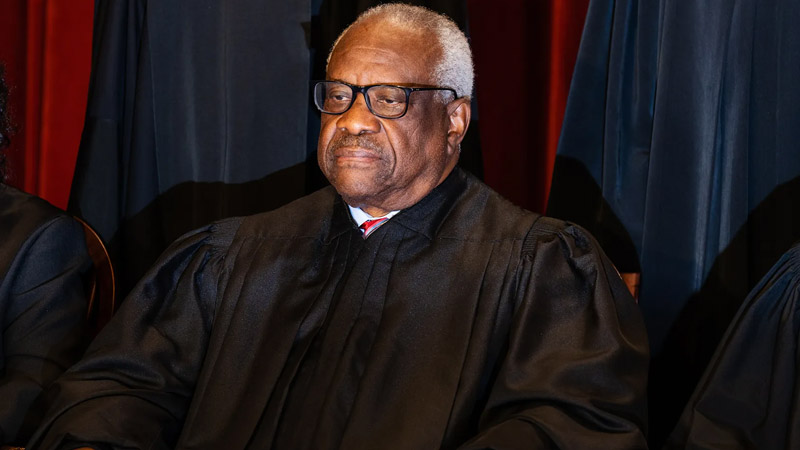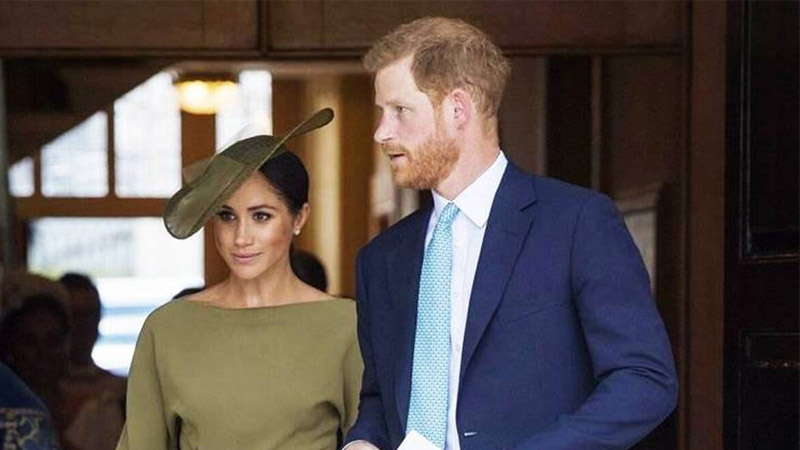“This doesn’t seem like an especially tough call” Justice Clarence Thomas Faces Criticism for Dodging Corruption Allegations

BLOOMBERG/GETTY IMAGES
Supreme Court Justice Clarence Thomas is facing criticism after complaining at a legal conference last week about the treatment he and his wife Ginni have received regarding allegations of corruption, while simultaneously refusing to address questions about his alleged ethical violations.
The 75-year-old conservative justice, known for his reticence during hearings over his more than 30-year tenure, spoke openly in general terms about the numerous reports detailing gifts, loans, and assistance he has received from wealthy conservatives. On Friday, Thomas addressed the audience, sidestepping direct questions about the accusations. He remarked, “I think there’s challenges to that. We’re in a world and we — certainly my wife and I the last two or three years it’s been — just the nastiness and the lies, it’s just incredible.”
As the Associated Press reported, “Supreme Court Justice Clarence Thomas told attendees at a judicial conference Friday that he and his wife have faced ‘nastiness’ and ‘lies’ over the last several years and decried Washington, D.C., as a ‘hideous place.’ Thomas spoke at a conference attended by judges, attorneys, and other court personnel in the 11th Circuit Judicial Conference, which hears federal cases from Alabama, Florida, and Georgia.”
Thomas’s comments have sparked further controversy and calls for transparency. MSNBC analyst Steve Benen pointed out that Thomas has ample opportunity to address these allegations directly and clarify any misunderstandings. Benen’s remarks highlight the broader expectation for public officials, especially those in judicial positions, to maintain transparency and integrity in their conduct.
The allegations against Thomas have centered on his acceptance of gifts and financial assistance from affluent conservatives, raising questions about potential conflicts of interest and ethical breaches. These revelations have fueled ongoing debates about the ethical standards and accountability of Supreme Court justices.
He then challenged the jurist by saying, “I’m afraid he’s going to have to be more specific. Specifically, which of the scandals should the public discount? On the one hand, we have a great many compelling, well-sourced, award-winning reports written and published by respected journalists. On the other hand, we have a controversial Supreme Court justice, burdened by decades of controversies, who apparently hopes the public takes his vague assertions at face value, despite his lack of credibility.” “This doesn’t seem like an especially tough call,” the MSNBC analyst concluded.
Despite the criticism, Thomas’s refusal to engage with the specifics of the allegations has only intensified scrutiny. Critics argue that by not addressing the accusations head-on, Thomas is perpetuating doubts about his ethical conduct and undermining public trust in the judiciary.
As the controversy continues, the calls for a thorough investigation and greater transparency in the conduct of Supreme Court justices are growing louder. The situation underscores the importance of accountability and ethical behavior in maintaining the integrity of the judicial system, especially at its highest levels.


